|
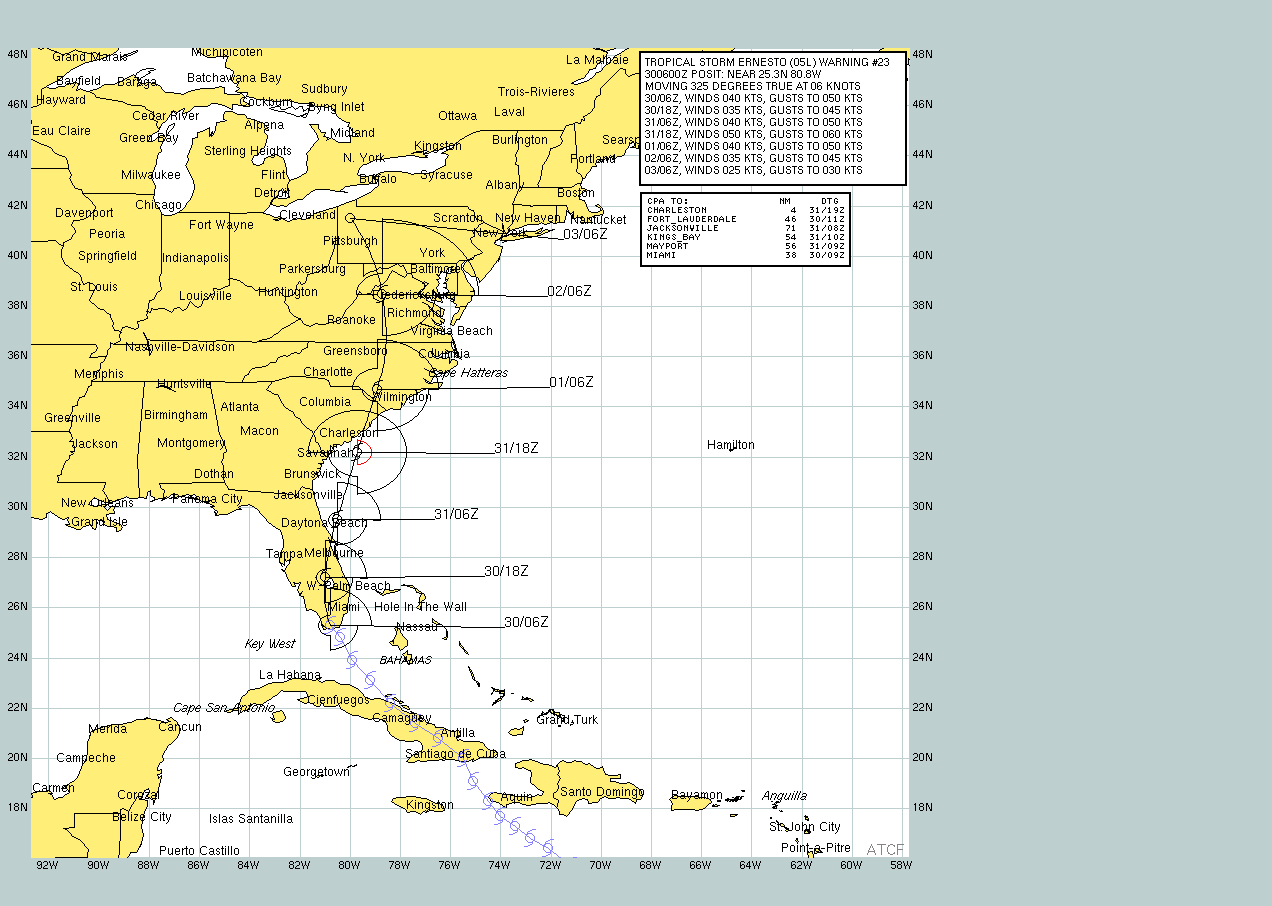 |
NRL Monterey Marine Meteorology Division
Hurricane Ernesto
National Hurricane Center |
| |
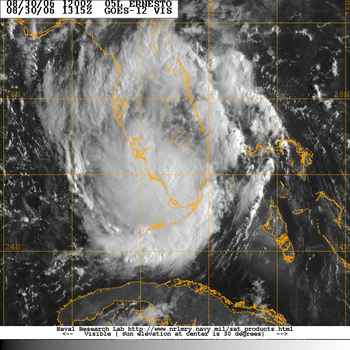 |
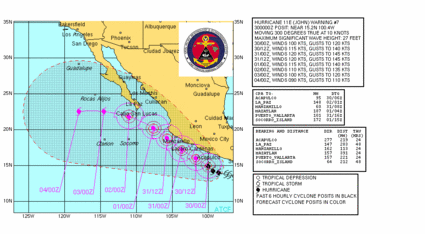 |
| Google News Tropical storm Ernesto |
Hurricane John path |
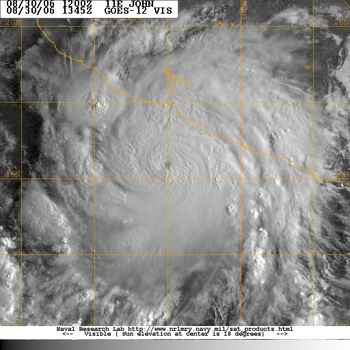 |
Hurricane John
|
| Hurricane Hunters Wow! |
WATCH vs. WARNING |
A HURRICANE WATCH issued for your part of the coast indicates the possibility that you could experience hurricane conditions within 36 hours.
This watch should trigger your family's disaster plan, and protective measures should be initiated, especially those actions that require extra time such as securing a boat, leaving a barrier island, etc. |
A HURRICANE WARNING issued for your part of the coast indicates that sustained winds of at least 74 mph are expected within 24 hours or less.
Once this warning has been issued, your family should be in the process of completing protectives actions and deciding the safest location to be during the storm. |
|
|
|
|
Preparing for a hurricane
If you are under a hurricane watch or warning, here are some basic steps to take to prepare for the storm:
- Learn about your community's emergency plans, warning signals, evacuation routes, and locations of emergency shelters. Buy a map of your area and mark them.
- Identify potential home hazards and know how to secure or protect them before the hurricane strikes. Be prepared to turn off electrical power when there is standing water, fallen power lines, or before you evacuate. Turn off gas and water supplies before you evacuate. Secure structurally unstable building materials before the storm.
- Buy a fire extinguisher and make sure your family knows where to find it and how to use it.
- Locate and secure your important papers, such as insurance policies, wills, licenses, stocks, etc. before the disaster
- Post Emergency phone numbers at every phone. Emergengy phone numbers for Miami
- Inform local authorities about any special needs, i.e., elderly or bedridden people, or anyone with a disability.
- Make plans to ensure your pets' safety.
|
|
 Discuss the type of hazards that could affect your family. Know your home's vulnerability to storm surge, flooding and wind. Discuss the type of hazards that could affect your family. Know your home's vulnerability to storm surge, flooding and wind.
 Locate a safe room or the safest areas in your home for each hurricane hazard. In certain circumstances the safest areas may not be your home but within your community. Locate a safe room or the safest areas in your home for each hurricane hazard. In certain circumstances the safest areas may not be your home but within your community.
 Determine escape routes from your home and places to meet. These should be measured in tens of miles rather than hundreds of miles. Get a map of the area. Determine escape routes from your home and places to meet. These should be measured in tens of miles rather than hundreds of miles. Get a map of the area.
 Have an out-of-state friend as a family contact, so all your family members have a single point of contact. Give that friend information where you are going to be, how many family members, their names, ages, race. In case your friends have to contact search and rescue in your behalf. Have an out-of-state friend as a family contact, so all your family members have a single point of contact. Give that friend information where you are going to be, how many family members, their names, ages, race. In case your friends have to contact search and rescue in your behalf.
 Make a plan now for what to do with your pets if you need to evacuate because the hurricane. Make a plan now for what to do with your pets if you need to evacuate because the hurricane.
 Post emergency telephone numbers by your phones and make sure your children know how and when to call 911. Post emergency telephone numbers by your phones and make sure your children know how and when to call 911.
 Check your insurance coverage - flood damage is not usually covered by homeowners insurance. Check your insurance coverage - flood damage is not usually covered by homeowners insurance.
 Stock non-perishable emergency supplies and a Disaster Supply Kit for hurricane. Stock non-perishable emergency supplies and a Disaster Supply Kit for hurricane.
 Use a NOAA weather radio. Remember to replace its battery every 6 months, as you do with your smoke detectors. Use a NOAA weather radio. Remember to replace its battery every 6 months, as you do with your smoke detectors.
 Take First Aid, CPR and disaster preparedness classes Take First Aid, CPR and disaster preparedness classes |
|
|
Dissater supply kit for hurricane
(from the Noaa website)
 Water - at least 1 gallon daily per person for 3 to 7 days (remember the water for your pets) Water - at least 1 gallon daily per person for 3 to 7 days (remember the water for your pets)
 Food - at least enough for 3 to 7 days Food - at least enough for 3 to 7 days
— non-perishable packaged or canned food / juices
— foods for infants or the elderly
— snack foods (non salty to do not increase thist)
— non-electric can opener
— cooking tools / fuel / pocket knife / disposable pans for cooking
— paper plates / plastic utensils
— single serving condiments they are shelf stable
— Ice / coole /freezer
/ freeze water jugs
—Heavy duty garbage cans to store water
 Blankets / Pillows, etc. Blankets / Pillows, etc.
 Water-purifying supplies, such as chlorine or iodine tablets or unscented, ordinary household chlorine bleach. Water-purifying supplies, such as chlorine or iodine tablets or unscented, ordinary household chlorine bleach.
 Personal hygiene supplies, such as soap, toothpaste, sanitary napkins, etc Personal hygiene supplies, such as soap, toothpaste, sanitary napkins, etc
 Clothing - seasonal / rain gear/ sturdy shoes Clothing - seasonal / rain gear/ sturdy shoes
 First Aid Kit / Medicines / Prescription Drugs / Bug spray First Aid Kit / Medicines / Prescription Drugs / Bug spray
 An emergency kit for your car with food, flares, booster cables, maps, tools, a first aid kit, fire extinguisher, sleeping bags, swiss army knife, manual can opener, etc. An emergency kit for your car with food, flares, booster cables, maps, tools, a first aid kit, fire extinguisher, sleeping bags, swiss army knife, manual can opener, etc.
 Special Items - for babies and the elderly Special Items - for babies and the elderly
— Disposable diapers
— Wipes
— Diaper-rash ointment
— Baby medicines
— Medicine dropper
— Extra formula, baby food
 Toiletries / Hygiene items / Moisture wipes Toiletries / Hygiene items / Moisture wipes
 Flashlight / Batteries / extra bulbs Flashlight / Batteries / extra bulbs
 Radio - Battery operated and NOAA weather radio Radio - Battery operated and NOAA weather radio
 Cash - Banks and ATMs may not be open or available for extended periods after the storm. Cash - Banks and ATMs may not be open or available for extended periods after the storm.
 Tools Tools
— A whistle
— wrench or pliers
— strong garbage bags, contractor bags available in home warehouses
— duct tape
— Sturdy working gloves
— Nails, screws, rope, hammer, shovel, pick ax
— If in flood zone leave an ax in the attic
— Canvas tarp
 Keys Keys
 Toys, Books and Games Toys, Books and Games
 Important documents - in a waterproof container Important documents - in a waterproof container
— insurance, medical records, bank account numbers, Social Security card, etc.
 Vehicle fuel tanks filled Vehicle fuel tanks filled
 Pet care items Pet care items
— proper identification / immunization records / medications
— ample supply of food and water (for dry food use a garbage bag)
— a carrier or cage
— muzzle and leash
 List of important phone numbers List of important phone numbers
 Map of the area Map of the area
 Matches in a plastic bag Matches in a plastic bag |
|
Common sense with a disaster
- Preparing for a hurricane
If you own a separate freezer, fill it up with bags of ice. Turn the temperature to full before the hurricane hits
- Get a bottle of Clorox without perfume or scent.

- Get a generator, get familiar with it and safety use. This is very important many people perished for
improper
handling. Remember they produce a toxic lethal gas that can not be seen or smelled. I has to be in the outside when it is on and not close to any window.
- Cook all the perishable food you have and freeze it. It may be easier to reheat than to cook a meal after the hurricane. Keep the food in ice.
- They sell a deep turkey frier propane gas with a strong single burner, we have found it very efficient to cook with and essential during a hurricane. There are different prices.
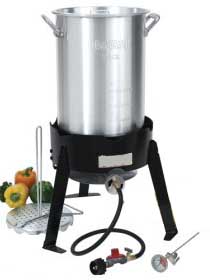
- Propane lamps are more energy efficient than running a generator to power electric lamps
NORTHSTAR DUAL FUEL LANTERN |
Propane Gas Coleman lamp |
Mantles for propane lamp |
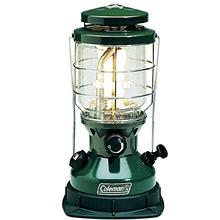 |
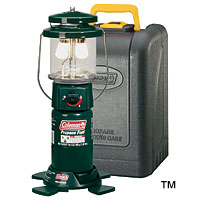 |
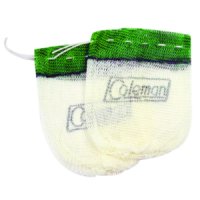 |
| Operates on Coleman fuel or unleaded gas Electronic ignition, no matches necessary Insta-Clip tube mantle for no strings to tie Metal guard protects globe 5.35 lbs Powered by 2 pints of Coleman fuel or unleaded gas 7 hours burn time on high, 14 hours on low Will operate on high for up to 7-hrs and on low for up to 14 hrs |
A Coleman lamp in a plastic case, used for camping, gives you a nice white light. You have to buy the fuel and replacement mantles too. Do not buy the electric rechargeable one, select the one with an already filled tank or the one you fill up with fuel.
The one in this picture you switch the prefilled tanks.
|
|
- Get a non batery radio, they have solar cells and hand cranck, this one is brand Freeplay
- We always collect water for showering or for the toilets in the bathtub and all the sinks, we clean it first with soap and water, disinfecting it, filling it up with water and placing some clorox for at least 20 minutes. Close the drain with duct tape. Place new water and save.
|
Place an ax in the attic for easy escape in case of flooding.
Get pictures of your family and pets, and place them in a plastic ziploc, keep it in your pockets.
If you own a video camera, videotape your house room by room, open drawers and recod them. Turn on every machine, this will show the insurance companies everything you owned was properly working. Keep the casette with you in two sealeable plasti bags, or send it to a friend in another area, where it would be kept safe. It will help you for insurance purposes after the hurricane.
If you don't own a generator, get a cell phone charger for the car, you can always have a way to charge the phone.
Adjust the thermostat on refrigerators and freezers to the coolest possible temperature many hours before the hurricane hits, give it enough time to freeze.
With enough time before the hurricane, secure any items outside which may damage property in a storm, such as bicycles, grills, propane tanks, etc
Turn off electricity to all of the pool equipment at the breaker, do not empty the pool, be careful throwing your patio furniture inside the pool unless you don't care about damage by bleach. Add extra bleach to the water. Remove pumps from underground pits after all valves have been closed and the
electricity has been shut off. Wrap any exposed pool equipment that you can't
remove with plastic and secure it tightly with tape/rope before the storm.
Cover windows and doors with plywood or boards or place large strips of masking tape or adhesive tape on the windows to reduce the risk of breakage and flying glass.
Put livestock and family pets in a safe area. Due to food and sanitation requirements, some emergency shelters cannot accept animals.
Make trees more wind resistant by removing diseased and damaged limbs, then strategically remove branches so that wind can blow through.
Install permanent shutters on your windows and add protection to the outside areas of sliding glass doors. See how to make plywood shutters for your home
Strengthen garage doors and unreinforced masonry move or secure anything that can be picked up by hurricane wind and become a projectile, i.e. lawn furniture, outdoor decorations or ornaments, trash cans, and hanging plants.
If you are ordered to evacuate for a hurricane:
- Take only essential items with you.
- If you have time, turn off the gas, electricity, and water.
- Disconnect appliances to reduce the likelihood of electrical shock when power is restored.
- Make sure your automobile's emergency kit is ready.
- Follow the designated evacuation routes—others may be blocked—and expect heavy traffic.
|
Contact your veterinarian or local humane society for information on preparing your pets for an emergency with ample time before the storm hits .
BEFORE THE DISASTER
- Make sure that your pets are current on their vaccinations. Pet shelters may require proof of vaccines.
- Have a current clear color photograph front and sides of your pets. Keep a collar with identification on your pet and have a leash on hand to control your pet.
- Have a properly-sized pet carrier for each animal - carriers should be large enough for the animal to stand and turn around.
- Plan your evacuation strategy and don't forget your pet! Specialized pet shelters, animal control shelters, veterinary clinics and friends and relatives out of harm's way are ALL potential refuges for your pet during a disaster.
- If you plan to shelter your pet - work it into your evacuation route planning.
 DURING THE DISASTER
Animals brought to a pet shelter are required to have: Proper identification collar and rabies tag, proper identification on all belongings, a carrier or cage, a leash, an ample supply of food, water and food bowls, any necessary medications, specific care instructions and news papers or trash bags for clean-up, cat litter/pan, medical records in a waterproof container, a first aid kit, manual can opener -
Bring pets indoor well in advance of a storm - reassure them and remain calm.
Pet shelters will be filled on first come, first served basis. Call ahead and determine availability. AFTER THE DISASTER
-
Walk pets on a leash until they become re-oriented to their home - often familiar scents and landmarks may be altered and pets could easily be confused and become lost. Also, downed power lines, reptiles brought in with high water and debris can all pose a threat for animals after a disaster.
-
If pets cannot be found after a disaster, contact the local animal control office to find out where lost animals can be recovered. Bring along a picture of your pet if possible.
-
After a disaster animals can become aggressive or defensive - monitor their behavior.
Don't forget your pet when preparing a family disaster plan.
PET DISASTER SUPPLY KIT for hurricane
 
- Proper identification including immunization records
Ample supply of food and water
- A carrier or cage
- Medications
- Muzzle, collar and leash
 |
|
First Aid Kit for hurricane
Assemble a first aid kit for your home and one for each car. Get an extra if you plan to go to a shelter
- (20) adhesive bandages, various sizes.
- (1) 5" x 9" sterile dressing.
- (1) conforming roller gauze bandage.
- (2) triangular bandages.
- (2) 3 x 3 sterile gauze pads.
- (2) 4 x 4 sterile gauze pads.
- (1) roll 3" cohesive bandage.
- (2) germicidal hand wipes or waterless alcohol-based hand sanitizer.
- (6) antiseptic wipes.
- (2) pair large medical grade non-latex gloves.
- Adhesive tape, 2" width.
- Anti-bacterial ointment.
- Cold pack.
- Scissors (small, personal).
- Tweezers.
- CPR breathing barrier, such as a face shield.
Non-Prescription Drugs
- Aspirin or nonaspirin pain reliever tylenol (poisonus for cats) baby aspirin (pet)
- Anti-diarrhea medication
- Antacid (for stomach upset)
- Syrup of Ipecac (use to induce vomiting if advised by the Poison Control Center)
- Laxative
- Benadryl
- Activated charcoal (use if advised by the Poison Control Center)
- Insect repellent sprays
- Petroleum jelly
- Thermometer
- Incontinece supplies
- Hypoallergenic adhesive tape
- Sunscreen
|
If You Are Ordered NOT to Evacuate
The great majority of injuries during a hurricane are cuts caused by flying glass or other debris. Other injuries include puncture wounds resulting from exposed nails, metal, or glass, and bone fractures.
To get through the storm in the safest possible manner:
- Monitor the radio or television for weather conditions, if possible.
- Stay indoors until the authorities declare the storm is over.
- Place an ax in the attic. In case of flood you will need it to go though the roof.
- Do not go outside, even if the weather appears to have calmed—the "calm eye" of the storm can pass quickly, leaving you outside when strong winds resume. In general the worst part of the storm is after the eye passes over.
- Stay away from all windows and exterior doors, seeking shelter in a bathroom or basement. Bathtubs can provide some shelter if you cover yourself with plywood or other materials.
- Prepare to evacuate to a shelter or to a neighbor's home if your home is damaged, or if you are instructed to do so by emergency personnel.
|
Know What to Do After a hurricane Is Over
|
Some basic steps you can take to meet physical and emotional needs -
- Try to return to as many of your personal and family routines as possible.
- Get rest and drink plenty of water.
- Limit your exposure to the sights and sounds of disaster, especially on television, the radio and in the newspapers.
- Focus on the positive.
- Recognize your own feelings.
- Reach out and accept help from others.
- Do something you enjoy. Do something as a family that you have all enjoyed in the past.
- Stay connected with your family and/or other support systems.
- Realize that, sometimes, recovery can take time.
As you recover, it is a good idea to make sure that you have updated your family disaster plan and replenished essential disaster supplies just in case a disaster happens again. You will always feel better knowing that you are prepared and ready for anything. The American Red Cross encourages you to take five key actions: make a plan, build a kit, get trained, volunteer and give blood. For more information, ask your local Red Cross chapter about how you can prepare for any further disaster.
If you have more questions or observe unusual behavior in your children, which you think may be caused by a reaction to the disaster, contact your local Red Cross chapter, child's counselor or community professional for additional information and help. The Red Cross can also arrange for you to talk with a member of its disaster staff who has special expertise in dealing with disaster stress for more information.
Helping Pets
If you have pets, try to find and comfort them. A scared animal may react by biting or scratching. Handle animals carefully and calmly. Pets can become upset and react in unusual ways, such as spraying urine, defecating on floors or scratching/biting furnishings. Since pets will need regular care and attention to help them calm down, try to leave pets with a family member, friend, veterinarian or boarding facility while you are cleaning up your home. Animals are naturally inquisitive and could get injured if they are brought back to a damaged home.
- Use toys, a blanket or favorite human's unsoiled clothing to comfort pets.
- Make sure pets are fed their usual diet, and have plenty of water.
- Visit your pets regularly, speak calmly and take some time out to play with them. Doing so can help you in your recovery, as well.
|
Vital Documents and Whom to Contact About Replacement
Driver's License |
|
Government Issued ID |
Contact the issuing authority |
Insurance policies |
Your insurance agent or company |
|
Department of Veterans Affairs, papers
1-800-827-1000 or TDD/TTY 1-800-829-4833 |
|
State Department—Passport Services, 202-955-0430 (24 hours) |
Birth, death and marriage certificates |
|
|
|
Credit cards |
The issuing companies as soon as possible |
Mastercard |
Contact issuing financial institution |
VISA |
1-800-VISA911
Contact issuing financial institution |
American Express |
1-800-441-0519 |
Discover |
1-800-discover (1-800-347-2683), TDD/TTY 1-800-347-7449 |
Titles to deeds |
Records department of the area in which the property is located |
Stocks and bonds |
Issuing company or your broker |
Wills |
Your attorney |
|
The IRS center where filed, your accountant or 1-800-829-1040 |
Citizenship papers |
Bureau of Citizenship and Immigration Services, 1-800-375-5283 |
Mortgage papers |
Lending institution |
|
The Treasury Department will exchange
mutilated or damaged U.S. currency. |
Lost, stolen or destroyed bonds |
The
Bureau of Public Debt |
|
How to preserve your documents |
| |
|
| |
|
|
|
|







